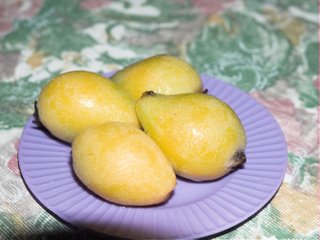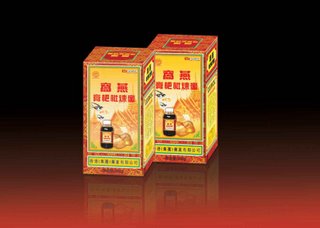 Loquats Ripening! 枇杷
Loquats Ripening! 枇杷These are our loquats in a photo taken a little earlier this week. (click on the photo for a close-up I took with this lens) …the first fruits of a crop that usually mid-March until the end of April in our backyard. We have the champagne loquat which has a tart, crisp flavor that does taste a little like champagne. Loquats have a special association with Southern China, at least in my mind since they are seen in Sung Dynasty paintings originating in that area.
Their name in Chinese 琵琶 ‘pi pa,’ is the same as the beautiful lute-like instrument that is one of my favorite instruments that’s been around for more than 2200 years. The fruit of course is a
 little smaller than the instrument though we’ve been trying to grow them that big. I found this site that has some sample 琵琶 music you can listen to.
little smaller than the instrument though we’ve been trying to grow them that big. I found this site that has some sample 琵琶 music you can listen to.The loquat is also made into a cough syrup, the 枇杷膏 that you can see here in the photo, which is just as effective and a lot better tasting than Western cough syrups. From what I have seen, they brew it up into a thick syrup sometimes adding honey though we usually buy the packaged types.

2 Comments:
Your picture presents us the 枇杷 in instead of 琵琶, the latter is a traditional Chinese musical instrument.
(Sigh) Thanks for pointing that out. My carelessness in not editing these posts more carefully...English and Chinese.
Perhaps you can solve a really tough problem. People use 橙, 橘子, 柳丁, 柳 橙, etc. for oranges.
Now, I know some will swear there are differences between them ('it's a tangerine!, no no, it's a mandarin orange!) but no two people seem to agree about it.
Post a Comment
<< Home